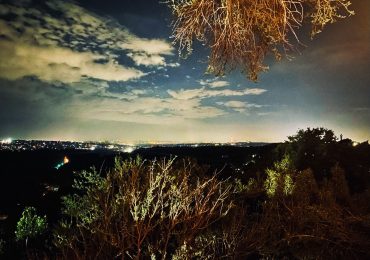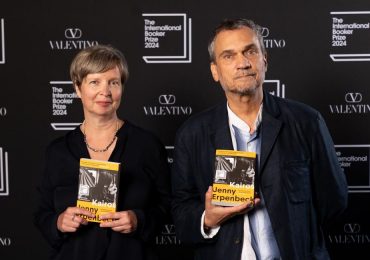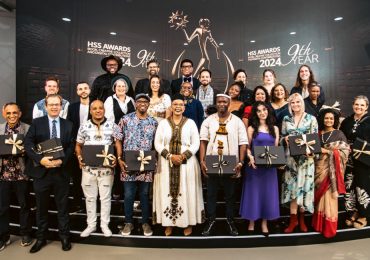The shortlist for this year’s Man Booker International Prize has been announced.
The Man Booker International celebrates the finest global fiction in translation, with the winner sharing the £50,000 (about R820 000) prize with their book’s translator.
Two previous Man Booker International Prize winners are on the shortlist: Han Kang and translator Deborah Smith, who won the prize in 2016 for The Vegetarian, and László Krasznahorkai, who won the prize in its former iteration in 2015, when it was awarded for a body of work.
Ahmed Saadawi’s Frankenstein in Baghdad, which won the 2014 International Prize for Arabic Fiction, also makes the shortlist.
The list spans four European languages, French, Spanish, Hungarian and Polish, as well as a novel from South Korea and one from Iraq, in Arabic.
This year’s shortlist is dominated by independent publishers, with two books from Tuskar Rock Press, and one each from MacLehose Press, Portobello Books, Oneworld and Fitzcarraldo Editions.
The 2018 Man Booker International Prize shortlist:
- Virginie Despentes (France), Frank Wynne, Vernon Subutex 1 (MacLehose Press)
The judges comment:
‘This book is a racy, sexy urban picaresque in which, through the horrors of contemporary capitalism, we learn a great deal about sex on the net, we learn a great deal about the relationships within the music industry. There is a kind of loneliness to the individual that comes out in this book which is very affecting and somehow very current.’
- Han Kang (South Korea), Deborah Smith, The White Book (Portobello Books)
The judges comment:
‘The White Book is a very delicate, very slight and measured piece of work. It’s a collection of white things; white is the colour of mourning and the colour of non-existence. It is a glimpsed story of an older sibling of Hang Kang’s who was born and very quickly died. It expresses respect and represents the guilt of being alive.’
- László Krasznahorkai (Hungary), John Batki, Ottilie Mulzet & George Szirtes, The World Goes On (Tuskar Rock Press)
The judges comment:
‘Krasznahorkai will be known to many followers of the Man Booker International because he was a winner when the prize was in its previous form. In this current volume, which is an collection of writings and stories interconnected by theme, he is both at his most profound and most approachable. He is both completely engrossing and absorbing, and a genius of prose, but is also someone who demands of his reader a particular kind of attentiveness and attention, which the novel doesn’t always ask of one.’
- Antonio Muñoz Molina (Spain), Camilo A Ramirez, Like a Fading Shadow (Tuskar Rock Press)
The judges comment:
‘One of the greatest strengths of this book is the way the author has created character—not only of the assassin, which he does in great depth, but there is a character to the city of Lisbon. Perhaps most difficult as a writer, there is a character of himself in two different time-frames. These two characters—who are the budding author, the not-yet-established author, and the then established author—looking back and looking into one another, tell us a great deal about, not only the writing process, but the very way that the intense act of imagination allows fiction to come into being.’
- Ahmed Saadawi (Iraq), Jonathan Wright, Frankenstein in Baghdad (Oneworld)
The judges comment:
‘This is a book that accrues in horrors as you move through it, having started very quietly with a portrait of an old woman who mourns her missing son and is certain he is going to come back. So you have this profound emotional contact with the fact of death and disappearance, and what that does to people. And then this entire city, with its many distinct neighbourhoods, bursts into horror with the bombings and awfulness of war. Saadawi manages to do this and at the same time to give us an overarching sense of irony—how do you get through this? How do people survive? How do they make do? What is this whole horrific process about and where does it take you in the depth of extreme?’
- Olga Tokarczuk (Poland), Jennifer Croft, Flights (Fitzcarraldo Editions)
The judges comment:
‘Flights is about the contemporary condition of perpetual movement, which is also about never leaving your body, which itself is in movement and is going to die. It’s a book about nomadism; it’s a book about escape, about going from place to place and living in airports. But at the same time you do inhabit a body and therefore we cannot escape the final thing, which is the grim reaper. Meanwhile it is also wonderfully playful and witty and ironic.’
‘This is a shortlist emblematic of the many adventures of fiction—its making and reading,’ chair of judges Lisa Appignanesi says. ‘We have mesmeric meditations, raucous, sexy, state- of- the- nation stories, haunting sparseness and sprawling tales; enigmatic cabinets of curiosity, and daring acts of imaginative projection—all this plus sparkling encounters with prose in translation.
‘We were sorry to have shed so much of our longlist talent, but this is a shortlist to read and re-read.’
The longlist was selected by a panel of five judges: Appignanesi, author and cultural commentator, Michael Hofmann, poet, reviewer and translator from German; Hari Kunzru, author of five novels including The Impressionist and White Tears; Tim Martin, journalist and literary critic, and Helen Oyeyemi, author of novels, plays and short stories including The Icarus Girl.
The winner of the 2018 prize will be announced on 22 May at a dinner at the Victoria & Albert Museum in London.
Last year’s winner was Israeli writer David Grossman, for his novel A Horse Walks Into a Bar, translated by Jessica Cohen. In the week following the announcement, sales of A Horse Walks into a Bar increased by 1,367 per cent, and Penguin had to reprint the paperback ten times last year due to ongoing demand. In its first year, the paperback has sold fifty-three times more than Grossman’s previous title in paperback, Falling Out of Time.
Watch a video of the judges’ comments:





